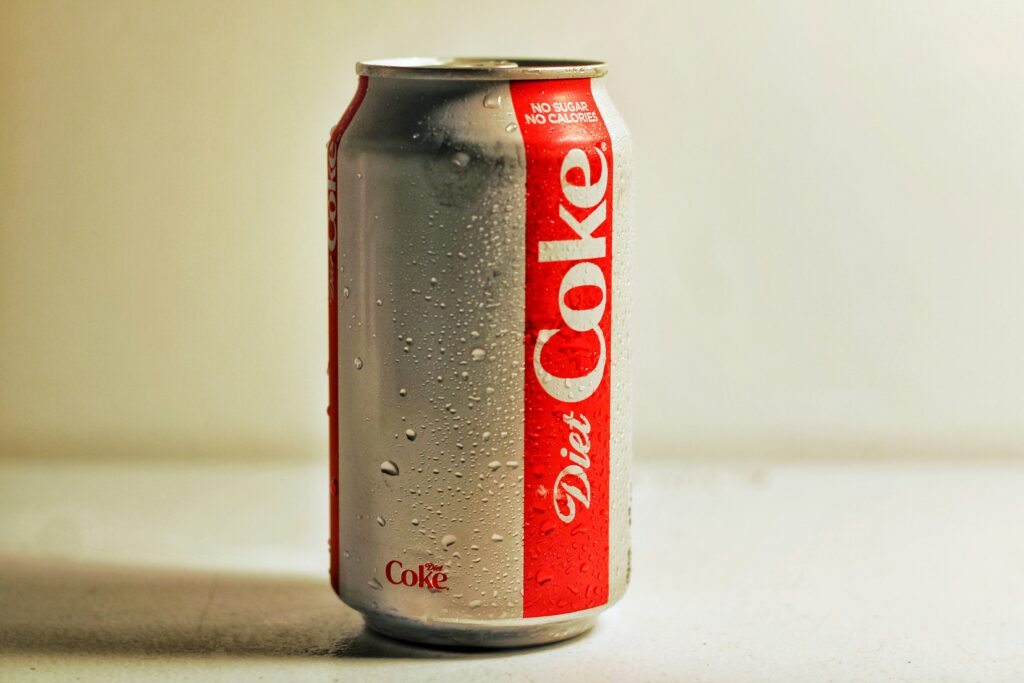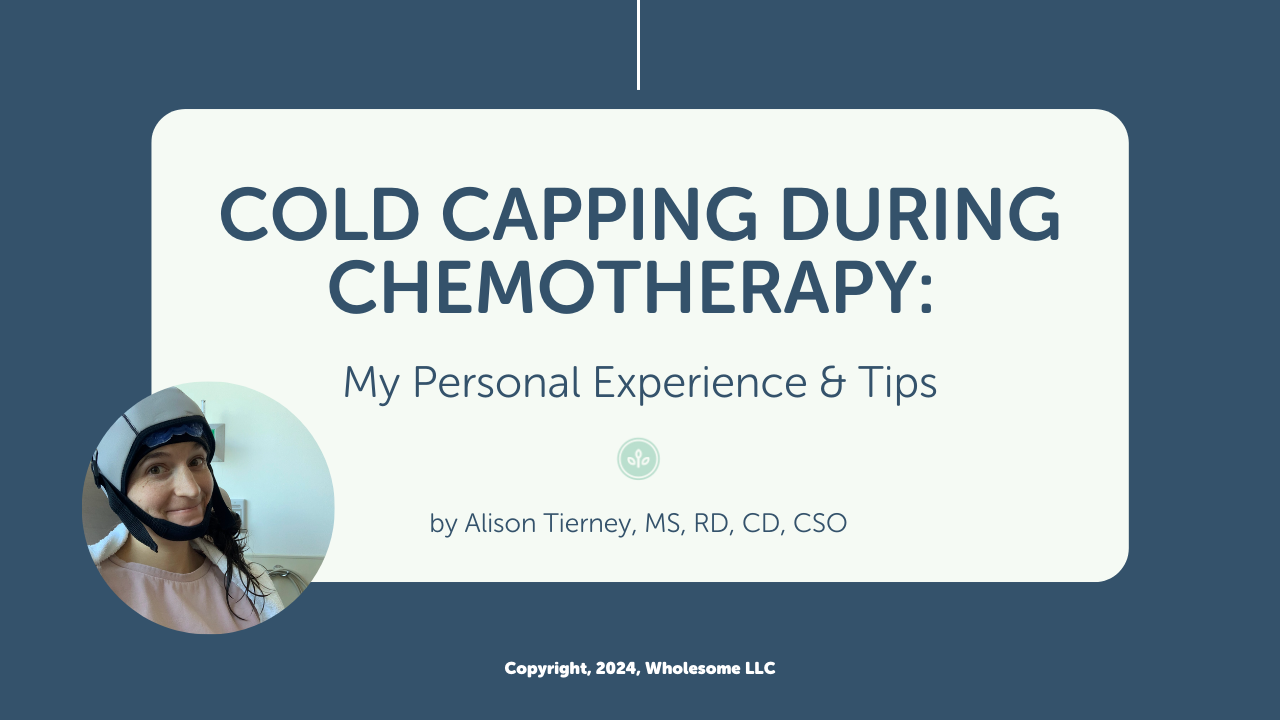The Wholesome Journey - Group Nutrition Coaching Program
Mentorship Program, 1:1 Nutrition Coaching with Alison
What do you want to learn more about?
Program Login
Podcast Features
November 19, 2025
Alison Tierney, MS, RD, CD, CSO
Alison is a registered dietitian, board-certified in oncology nutrition, and a cancer thriver. Her expertise in oncology nutrition and personal experience with her own cancer diagnosis and its treatment provide her with the unique perspective of being able to relate to her clients on an entirely different level. Her content is consistently focused on evidence-based guidelines and seeks to increase the awareness of the power of nutrition to complement traditional cancer therapies.
- Alison Tierney, MS, RD, CD, CSO
- Alison Tierney, MS, RD, CD, CSO
- Alison Tierney, MS, RD, CD, CSO
- Alison Tierney, MS, RD, CD, CSO
- Alison Tierney, MS, RD, CD, CSO
- Alison Tierney, MS, RD, CD, CSO
- Alison Tierney, MS, RD, CD, CSO
- Alison Tierney, MS, RD, CD, CSO
- Alison Tierney, MS, RD, CD, CSO
- Alison Tierney, MS, RD, CD, CSO
- Alison Tierney, MS, RD, CD, CSO
- Alison Tierney, MS, RD, CD, CSO
- Alison Tierney, MS, RD, CD, CSO
- Alison Tierney, MS, RD, CD, CSO
- Alison Tierney, MS, RD, CD, CSO
- Alison Tierney, MS, RD, CD, CSO
- Alison Tierney, MS, RD, CD, CSO
- Alison Tierney, MS, RD, CD, CSO
- Alison Tierney, MS, RD, CD, CSO
- Alison Tierney, MS, RD, CD, CSO
- Alison Tierney, MS, RD, CD, CSO
- Alison Tierney, MS, RD, CD, CSO
- Alison Tierney, MS, RD, CD, CSO
- Alison Tierney, MS, RD, CD, CSO
- Alison Tierney, MS, RD, CD, CSO
- Alison Tierney, MS, RD, CD, CSO
- Alison Tierney, MS, RD, CD, CSO
- Alison Tierney, MS, RD, CD, CSO
- Alison Tierney, MS, RD, CD, CSO
- Alison Tierney, MS, RD, CD, CSO
- Alison Tierney, MS, RD, CD, CSO
- Alison Tierney, MS, RD, CD, CSO
- Alison Tierney, MS, RD, CD, CSO
- Alison Tierney, MS, RD, CD, CSO
- Alison Tierney, MS, RD, CD, CSO
- Alison Tierney, MS, RD, CD, CSO
- Alison Tierney, MS, RD, CD, CSO
- Alison Tierney, MS, RD, CD, CSO
- Alison Tierney, MS, RD, CD, CSO
- Alison Tierney, MS, RD, CD, CSO
- Alison Tierney, MS, RD, CD, CSO
- Alison Tierney, MS, RD, CD, CSO
- Alison Tierney, MS, RD, CD, CSO
- Alison Tierney, MS, RD, CD, CSO
- Alison Tierney, MS, RD, CD, CSO
- Alison Tierney, MS, RD, CD, CSO
- Alison Tierney, MS, RD, CD, CSO
- Alison Tierney, MS, RD, CD, CSO
- Alison Tierney, MS, RD, CD, CSO
- Alison Tierney, MS, RD, CD, CSO
- Alison Tierney, MS, RD, CD, CSO
- Alison Tierney, MS, RD, CD, CSO
- Alison Tierney, MS, RD, CD, CSO
- Alison Tierney, MS, RD, CD, CSO
- Alison Tierney, MS, RD, CD, CSO
- Alison Tierney, MS, RD, CD, CSO
- Alison Tierney, MS, RD, CD, CSO
- Alison Tierney, MS, RD, CD, CSO
- Alison Tierney, MS, RD, CD, CSO
- Alison Tierney, MS, RD, CD, CSO
- Alison Tierney, MS, RD, CD, CSO
- Alison Tierney, MS, RD, CD, CSO
- Alison Tierney, MS, RD, CD, CSO
- Alison Tierney, MS, RD, CD, CSO
- Alison Tierney, MS, RD, CD, CSO
- Alison Tierney, MS, RD, CD, CSO
- Alison Tierney, MS, RD, CD, CSO
- Alison Tierney, MS, RD, CD, CSO
- Alison Tierney, MS, RD, CD, CSO
- Alison Tierney, MS, RD, CD, CSO
- Alison Tierney, MS, RD, CD, CSO
- Alison Tierney, MS, RD, CD, CSO
- Alison Tierney, MS, RD, CD, CSO
- Alison Tierney, MS, RD, CD, CSO
- Alison Tierney, MS, RD, CD, CSO
- Alison Tierney, MS, RD, CD, CSO
- Alison Tierney, MS, RD, CD, CSO
- Alison Tierney, MS, RD, CD, CSO
- Alison Tierney, MS, RD, CD, CSO
- Alison Tierney, MS, RD, CD, CSO
- Alison Tierney, MS, RD, CD, CSO
- Alison Tierney, MS, RD, CD, CSO
- Alison Tierney, MS, RD, CD, CSO
- Alison Tierney, MS, RD, CD, CSO
- Alison Tierney, MS, RD, CD, CSO
- Alison Tierney, MS, RD, CD, CSO
- Alison Tierney, MS, RD, CD, CSO
- Alison Tierney, MS, RD, CD, CSO
- Alison Tierney, MS, RD, CD, CSO
- Alison Tierney, MS, RD, CD, CSO
- Alison Tierney, MS, RD, CD, CSO
- Alison Tierney, MS, RD, CD, CSO
- Alison Tierney, MS, RD, CD, CSO
- Alison Tierney, MS, RD, CD, CSO
- Alison Tierney, MS, RD, CD, CSO
- Alison Tierney, MS, RD, CD, CSO
- Alison Tierney, MS, RD, CD, CSO
- Alison Tierney, MS, RD, CD, CSO
- Alison Tierney, MS, RD, CD, CSO
- Alison Tierney, MS, RD, CD, CSO
- Alison Tierney, MS, RD, CD, CSO
- Alison Tierney, MS, RD, CD, CSO
- Alison Tierney, MS, RD, CD, CSO
- Alison Tierney, MS, RD, CD, CSO
- Alison Tierney, MS, RD, CD, CSO
- Alison Tierney, MS, RD, CD, CSO
- Alison Tierney, MS, RD, CD, CSO
- Alison Tierney, MS, RD, CD, CSO
- Alison Tierney, MS, RD, CD, CSO
- Alison Tierney, MS, RD, CD, CSO
- Alison Tierney, MS, RD, CD, CSO
- Alison Tierney, MS, RD, CD, CSO
- Alison Tierney, MS, RD, CD, CSO
- Alison Tierney, MS, RD, CD, CSO
- Alison Tierney, MS, RD, CD, CSO
- Alison Tierney, MS, RD, CD, CSO
- Alison Tierney, MS, RD, CD, CSO
- Alison Tierney, MS, RD, CD, CSO
- Alison Tierney, MS, RD, CD, CSO
- Alison Tierney, MS, RD, CD, CSO
- Alison Tierney, MS, RD, CD, CSO
- Alison Tierney, MS, RD, CD, CSO
Let’s face it—these days, it feels like everything is being blamed for causing cancer, including Diet Coke and other beverages that contain artificial sweeteners. But it’s important to remember this: there are over 200 different types of cancer, and each type has its own unique features and many contributing causes. Cancer rarely develops from just one food, drink, or exposure. But, does Diet Coke cause cancer?
When it comes to nutrition and cancer, just as no single food can prevent or cure the disease. And no single food or drink is the sole cause. Still, it is completely normal and very common for cancer survivors, including myself, to question everything! You might find yourself asking:
Is this safe?
Could this increase my cancer risk?
Am I making the right choice for my health?
This article will provide a balanced, evidence-based look at the science behind Diet Coke, its key ingredients, and the ongoing debate about its link to cancer. We will explore what major health organizations are saying about the question “Does Diet Coke Cause Cancer?”, break down the scientific jargon, and help you make informed decisions about the beverages you choose.
What Harmful Chemicals Are in Diet Coke?
Diet Coke is often the first beverage that comes to mind when people think about aspartame, but it’s not the only one. Many popular products have this artificial sweetener. These include other diet soda such as Diet Pepsi, Coca-Cola Zero, and even non-soda items like some sugar-free chewing gum, yogurts, and flavored waters, making it a common ingredient in many processed foods.
While this article focuses on aspartame in Diet Coke, most of the research applies to aspartame in general, not just in this specific diet soda. According to the Coca-Cola Company, Diet Coke contains:
- Carbonated water
- Caramel color
- Aspartame
- Phosphoric acid
- Potassium benzoate
- Natural flavors
- Citric acid
- Caffeine
Among these, caramel color and phosphoric acid have raised safety questions in the past, but the primary focus of the cancer debate has always been on its main sweetening agent: aspartame. Aspartame is one of many sugar substitutes used by food manufacturers to reduce the calorie and sugar content in their products.
What is Aspartame – and is it a Carcinogen?
Aspartame has been used as a food additive in the United States since the U.S. Food and Drug Administration (FDA) first approved it in 1974. Because aspartame is almost 200 times sweeter than regular table sugar, people use it to sweeten foods without adding the significant calories that sugar does.
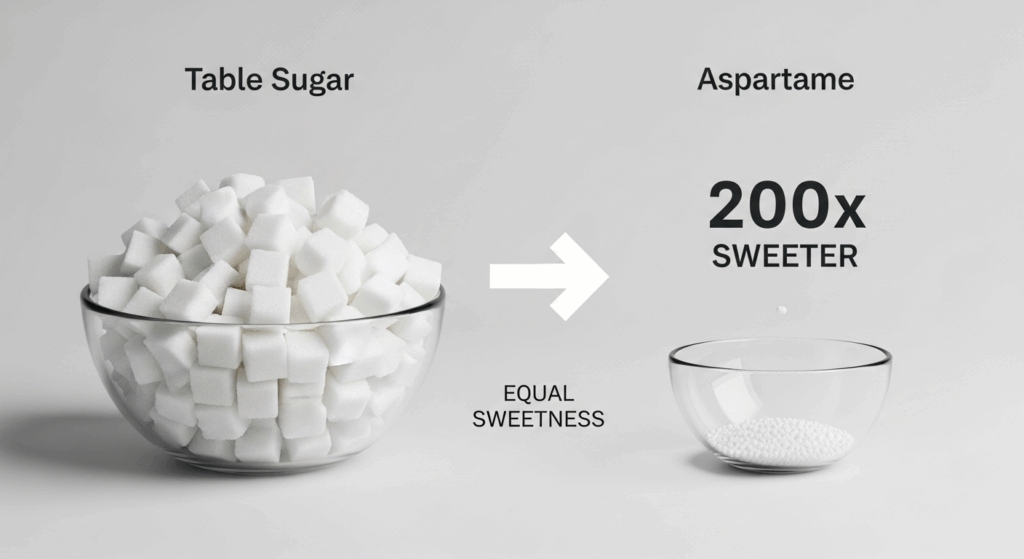
Aspartame is often called a “chemical,” which can sound alarming. But it’s important to understand that literally everything is made of chemicals.
- Water.
- Oxygen.
- Salt.
- Protein.
- Fats.
- Vitamins.
Chemicals are simply substances, and they aren’t inherently good or bad. “Natural” doesn’t always mean safe, and “synthetic” doesn’t always mean dangerous. The key is understanding the specific substance, its dose, and how our bodies process it. Aspartame itself is made from two amino acids: aspartic acid and phenylalanine.
The conversation about its safety was reignited recently by a major global health body. The World Health Organization (WHO), through its cancer research agency, the International Agency for Research on Cancer (IARC), evaluates various substances to identify potential cancer hazards. Their 2023 assessment of aspartame brought this decades-old debate back into the headlines.
Does Aspartame Cause Cancer?
People have worried about aspartame and cancer risk for many years. Since the late 2000s, some have suggested that aspartame might increase the risk of leukemia, lymphoma, and other cancers, based largely on studies in experimental animals.
The debate intensified in 2023. In a significant announcement, the World Health Organization and the International Agency for Research on Cancer (IARC) jointly released a statement classifying aspartame as a “Group 2B Carcinogen,” which means it is “possibly carcinogenic to humans”. This caused a big uproar in the nutrition and cancer community.
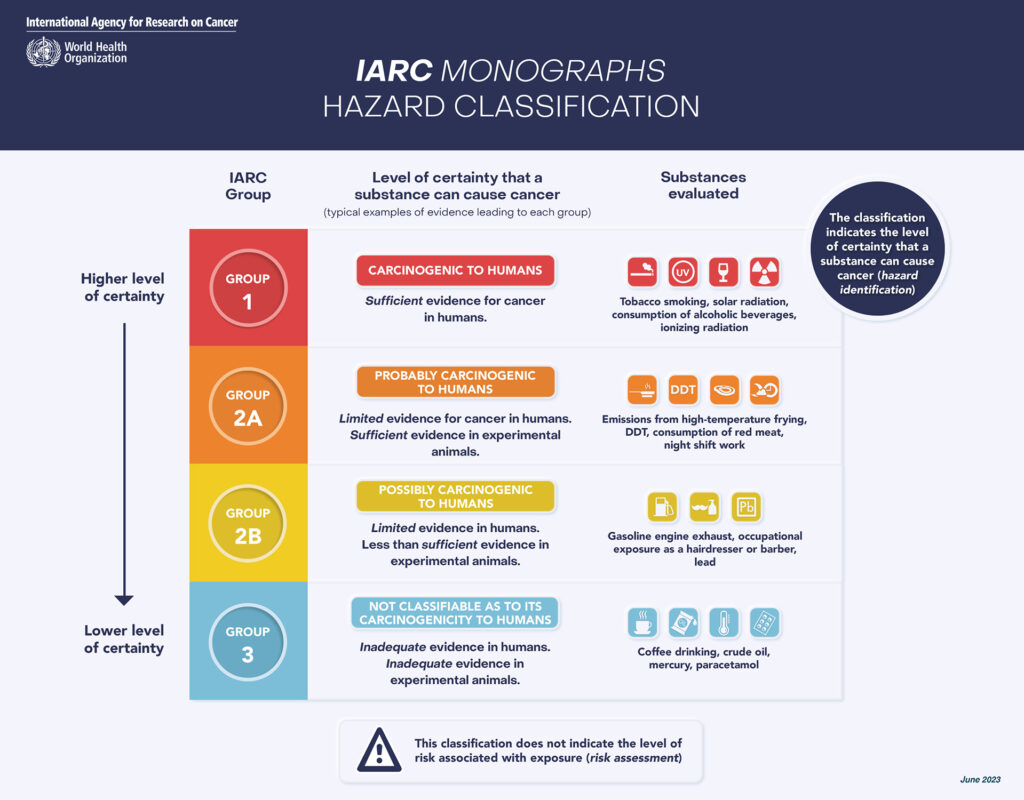
According to the IARC, a Group 2B classification is used when there is “limited evidence” of carcinogenicity in humans and less than sufficient evidence in animal studies. It’s crucial to understand what this means. This classification identifies a potential hazard, but it does not perform a risk assessment on how likely that hazard is to cause harm in real-world scenarios. For context, other substances in Group 2B include aloe vera extract and pickled vegetables.
The limited evidence for this classification came from three studies that observed a potential link between artificially sweetened beverage consumption and a type of liver cancer (hepatocellular carcinoma). However, the IARC noted that other factors, like underlying health conditions of the participants, could not be ruled out. While some studies have suggested potential links to cancers like bladder cancer or non-Hodgkin lymphoma, the overall body of high-quality human research has not established a consistent or causal link.
How Much Diet Coke is Safe to Drink?
While the IARC identifies potential hazards, other international bodies are responsible for conducting a formal risk assessment to determine if a substance is safe at typical consumption levels. These agencies establish an Acceptable Daily Intake (ADI), which is the amount of a substance that can be consumed daily over a lifetime without presenting an appreciable health risk.
Key regulatory agencies have maintained that aspartame is safe for consumption within these established limits:
- The Joint Expert Committee on Food Additives (JECFA), a committee run by the WHO and the Food and Agriculture Organization (FAO), reaffirmed its ADI of 0-40 mg per kilogram of body weight.
- The U.S. Food and Drug Administration (FDA) sets its ADI even higher, at 50 mg/kg of body weight.
- The European Food Safety Authority (EFSA) also considers aspartame safe and maintains an ADI of 40 mg/kg of body weight.
To put this in perspective, a 12-ounce can of diet soda contains about 200 mg of aspartame. For a 150-pound (68 kg) person, reaching the JECFA’s 40 mg/kg limit would require consuming more than 14 cans of diet drinks every single day. That is a very high level of consumption that far exceeds typical intake.
Is Diet Coke Safer than Regular Coke?
As a dietitian, one of the most common questions I hear is, “Is xyz healthy?” The answer almost always depends on the comparison. When we place Diet Coke next to its full-sugar counterpart, the context becomes clearer.
Sugar-sweetened beverages (SSBs) have been extensively studied, and the evidence is clear: regular consumption is strongly linked to weight gain, an increased risk of type 2 diabetes, heart disease, and other metabolic issues. The American Institute for Cancer Research (AICR) specifically recommends limiting the consumption of sugar-sweetened beverages as part of a cancer risk reduction lifestyle.
From this perspective, choosing a diet soda over a regular one may be a useful tool for some individuals to reduce the intake of added sugars and overall calories. However, this doesn’t automatically make Diet Coke a “health food.” While artificial sweeteners don’t have the same direct impact on blood sugar, questions remain about their long-term effects on the gut microbiome, appetite regulation, and overall health. The healthiest choice remains drinks that hydrate and nourish without added ingredients, such as water, unsweetened tea, or black coffee.
Is Diet Coke Safe as a Cancer Survivor?
As both a board-certified oncology dietitian and a cancer survivor, I deeply understand the internal struggle of wanting something sweet without worrying about increasing your health risks. That concern is valid, and you’re not alone in feeling it. After a diagnosis, cancer survivors are often hear to limit sugar, and many turn to diet drinks as an alternative, only to then wonder, “Are artificial sweeteners really any better for me? Does Diet Coke cause cancer?”
Here’s what I remind my clients (and myself): the goal isn’t perfection—it’s progress and perspective. An occasional Diet Coke is unlikely to cause harm. What matters most is your consistent dietary pattern, not the occasional treat.
That said, if Diet Coke or other sweetened beverages have become a daily habit, it’s worth exploring alternatives that better support your body’s long-term health:
- Sparkling water with a splash of fruit juice
- Herbal or unsweetened iced tea
- Water infused with lemon, cucumber, or mint
- Electrolyte beverages with little to no added sugar, such as ElectroMag (my personal, go-to electrolyte drink)
Focusing on these options helps provide hydration and nutrients without the additives, supporting your overall well-being in a more holistic way.
Final Thoughts: Does Diet Coke Cause Cancer?
So—does Diet Coke cause cancer? Based on the current body of scientific evidence, there is no conclusive proof that aspartame at levels consumed by most people causes cancer.
The world’s leading food safety agencies continue to affirm its safety below the generous Acceptable Daily Intake levels.
However, the IARC’s “possibly carcinogenic” classification serves as a reminder that research is ongoing and that we should remain mindful of our consumption habits. The key takeaway is moderation.
While an occasional diet soda is not a cause for alarm, relying heavily on any processed foods or beverages with artificial sweeteners is less than ideal.
Your body thrives when nourished with whole, hydrating, and unsweetened options. The power lies in making intentional choices that align with your health goals, allowing you to live with confidence rather than fear.
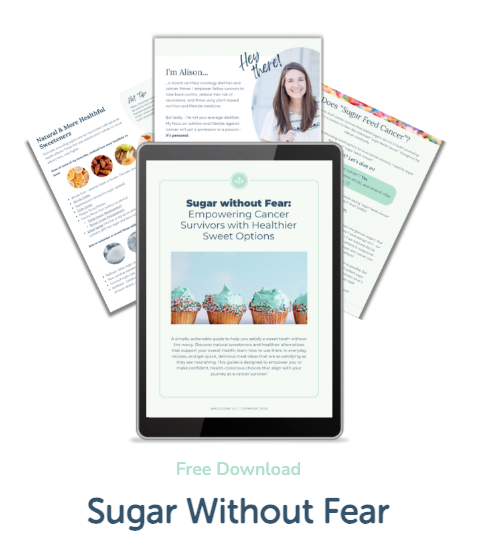
Bonus Download – Sugar without Fear
If this blog helped clear up some confusion, you’ll love my free guide: 👉 Sugar without Fear: Empowering Cancer Survivors with Healthier Sweet Options
It breaks down simple swaps and realistic strategies to enjoy sweetness—without guilt or fear.
And if you found this helpful, forward it to a fellow survivor who’s also navigating the confusing world of nutrition after cancer.
With you in this, always. 💪
Alison
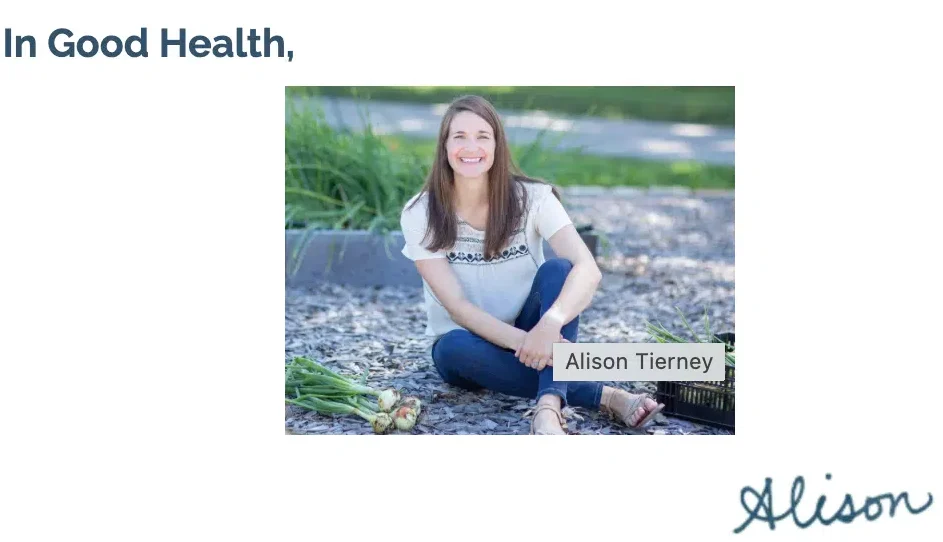
This post contains affiliate links. Please see Website Disclaimer for more information about our policies.
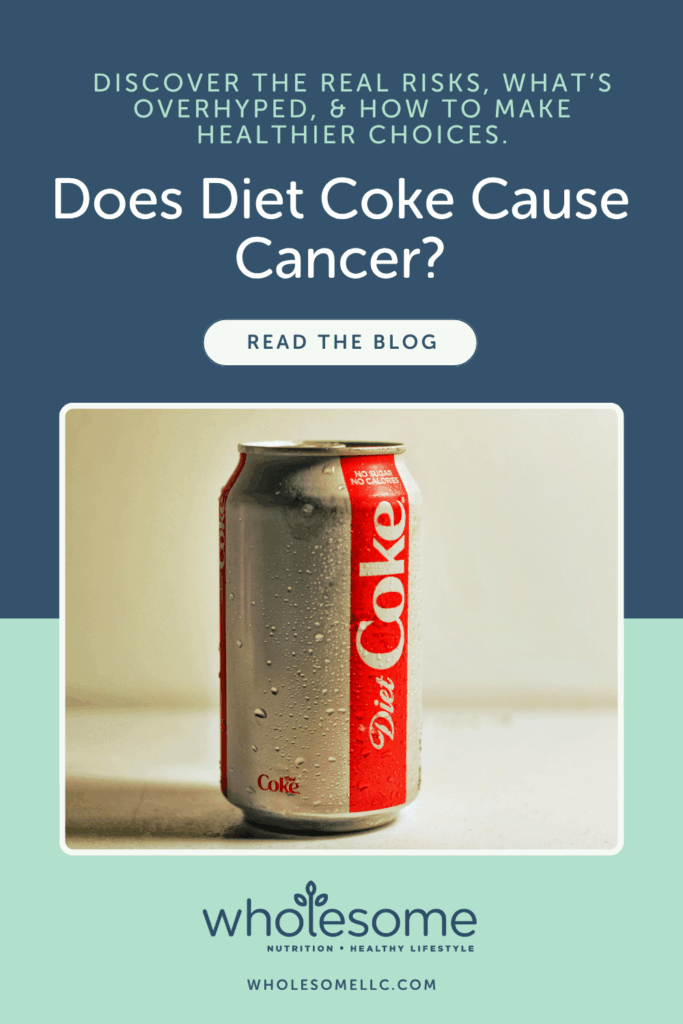
Does Diet Coke Cause Cancer?
Featured Articles
Wholesome LLC is not a medical practice, and its employees cannot offer medical advice. This website provides educational information but it is not a substitute for medical advice from a licensed medical professional who is familiar with your particular facts and circumstances. The information contained on this website is not intended to diagnose, treat, or cure any disease and shall not be construed as medical advice. The information and education on this website is provided for you to use at your own discretion.
You can further review our disclaimer here.
Wholesome
About Alison
Courses & Programs
The Wholesome Journey
Free Resources
FAQs
Press & Media
Recipes
Blog
Contact Us
Shop
© 2026 Wholesome, LLC All rights reserved.
Privacy Policy
Terms of Use
Disclaimer
Mobile Terms of Service
